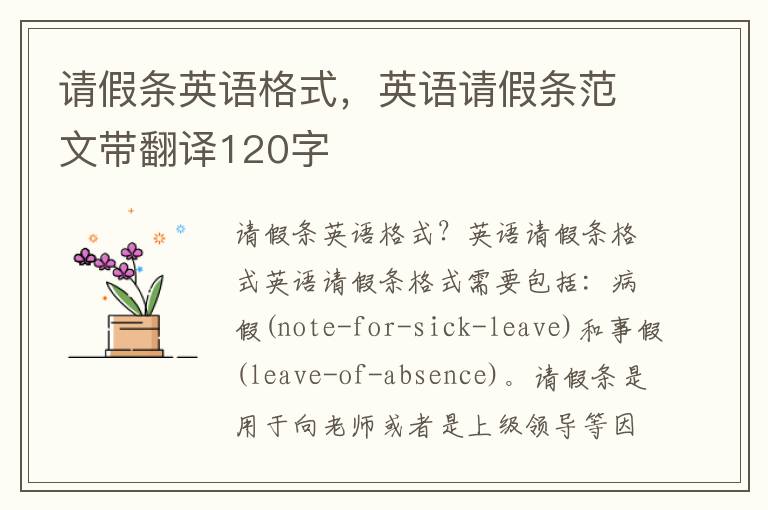【简介】感谢网友“雕龙文库”参与投稿,这里小编给大家分享一些[db:SEO标题],方便大家学习。
我们的社会说,一切都要行动,停滞就代表懒惰、消极以及无收益。而那些我们被迫停下来的时刻,比如排队、等医生或者在乘坐公交车,我们往往会感到不自在,往往想找些事儿干。一些人拿着手机按来按去,一些人会处理文件或者读一些东西,还有些人只是坐立不安的呆在那儿。貌似我们都不太习惯“停顿。
片刻停留,片刻自我。你需要做的仅仅是每天安静的在那儿坐会儿。当你习惯了以后,可以尝试“每天少做些事儿。享受停下脚步的那一刻吧。这是人生的珍宝,是每个人都可以一生拥有的珍宝。
Be still.
Just for a moment.
Listen to the world around you. Feel your breath coming in and going out. Listen to your thoughts. See the details of your surroundings.
Be at peace with being still.
In this modern world, activity and movement are thedefault modes(默认模式),if not with our bodies then at least with our minds, with our attention. We rush around all day, doing things, talking, emailing, sending and reading messages, clicking from browser tab to the next, one link to the next.
We are always on, always connected, always thinking, always talking. There is no time for stillness — and sitting in front of afrenetic(狂热的)computer all day, and then in front of thehyperactive(极度活跃的)television, doesn’t count as stillness.
This comes at a cost: we lose that time forcontemplation(注视,沉思),for observing and listening. We lose peace.
And worse yet: all the rushing around is oftencounterproductive(事与愿违的).I know, in our society action is all-important —inaction(无为,懈怠)is seen as lazy and passive and unproductive. However, sometimes too much action is worse than no action at all. You can run around crazily, all sound and fury, but get nothing done. Or you can get a lot done — but nothing important. Or you can hurt things with your actions, make things worse than if you’d stayed still.
And when we are forced to be still — because we’re in line for something, or waiting at a doctor’s appointment, or on a bus or train — we often getantsy(坐立不安),and need to find something to do. Some of us will have our mobile devices, others will have a notebook or folder with things to do or read, others willfidget(坐立不安).Being still isn’t something we’re used to.
Take a moment to think about how you spend your days — at work, after work, getting ready for work, evenings and weekends. Are you constantly rushing around? Are you constantly reading and answering messages, checking on the news and the latest stream of information? Are you always trying to Get Lots of Things Done, ticking off tasks from your list like a machine, rushing through your schedule?
Is this how you want to spend your life?
If so, peace be with you. If not, take a moment to be still. Don’t think about what you have to do, or what you’ve done already. Just be in the moment.
Then after a minute or two of doing that, contemplate your life, and how you’d like it to be. See your life with less movement, less doing, less rushing. See it with more stillness, more contemplation, more peace.
Then be that vision.
It’s pretty simple, actually: all you have to do is sit still for a little bit each day. Once you’ve gotten used to that, try doing less each day. Breathe when you feel yourself moving too fast. Slow down. Be present. Find happiness now, in this moment, instead of waiting for it.
Savor(使有风味,尽情享受)the stillness. It’s a treasure, and it’s available to us, always.
我们的社会说,一切都要行动,停滞就代表懒惰、消极以及无收益。而那些我们被迫停下来的时刻,比如排队、等医生或者在乘坐公交车,我们往往会感到不自在,往往想找些事儿干。一些人拿着手机按来按去,一些人会处理文件或者读一些东西,还有些人只是坐立不安的呆在那儿。貌似我们都不太习惯“停顿。
片刻停留,片刻自我。你需要做的仅仅是每天安静的在那儿坐会儿。当你习惯了以后,可以尝试“每天少做些事儿。享受停下脚步的那一刻吧。这是人生的珍宝,是每个人都可以一生拥有的珍宝。
Be still.
Just for a moment.
Listen to the world around you. Feel your breath coming in and going out. Listen to your thoughts. See the details of your surroundings.
Be at peace with being still.
In this modern world, activity and movement are thedefault modes(默认模式),if not with our bodies then at least with our minds, with our attention. We rush around all day, doing things, talking, emailing, sending and reading messages, clicking from browser tab to the next, one link to the next.
We are always on, always connected, always thinking, always talking. There is no time for stillness — and sitting in front of afrenetic(狂热的)computer all day, and then in front of thehyperactive(极度活跃的)television, doesn’t count as stillness.
This comes at a cost: we lose that time forcontemplation(注视,沉思),for observing and listening. We lose peace.
And worse yet: all the rushing around is oftencounterproductive(事与愿违的).I know, in our society action is all-important —inaction(无为,懈怠)is seen as lazy and passive and unproductive. However, sometimes too much action is worse than no action at all. You can run around crazily, all sound and fury, but get nothing done. Or you can get a lot done — but nothing important. Or you can hurt things with your actions, make things worse than if you’d stayed still.
And when we are forced to be still — because we’re in line for something, or waiting at a doctor’s appointment, or on a bus or train — we often getantsy(坐立不安),and need to find something to do. Some of us will have our mobile devices, others will have a notebook or folder with things to do or read, others willfidget(坐立不安).Being still isn’t something we’re used to.
Take a moment to think about how you spend your days — at work, after work, getting ready for work, evenings and weekends. Are you constantly rushing around? Are you constantly reading and answering messages, checking on the news and the latest stream of information? Are you always trying to Get Lots of Things Done, ticking off tasks from your list like a machine, rushing through your schedule?
Is this how you want to spend your life?
If so, peace be with you. If not, take a moment to be still. Don’t think about what you have to do, or what you’ve done already. Just be in the moment.
Then after a minute or two of doing that, contemplate your life, and how you’d like it to be. See your life with less movement, less doing, less rushing. See it with more stillness, more contemplation, more peace.
Then be that vision.
It’s pretty simple, actually: all you have to do is sit still for a little bit each day. Once you’ve gotten used to that, try doing less each day. Breathe when you feel yourself moving too fast. Slow down. Be present. Find happiness now, in this moment, instead of waiting for it.
Savor(使有风味,尽情享受)the stillness. It’s a treasure, and it’s available to us, always.









